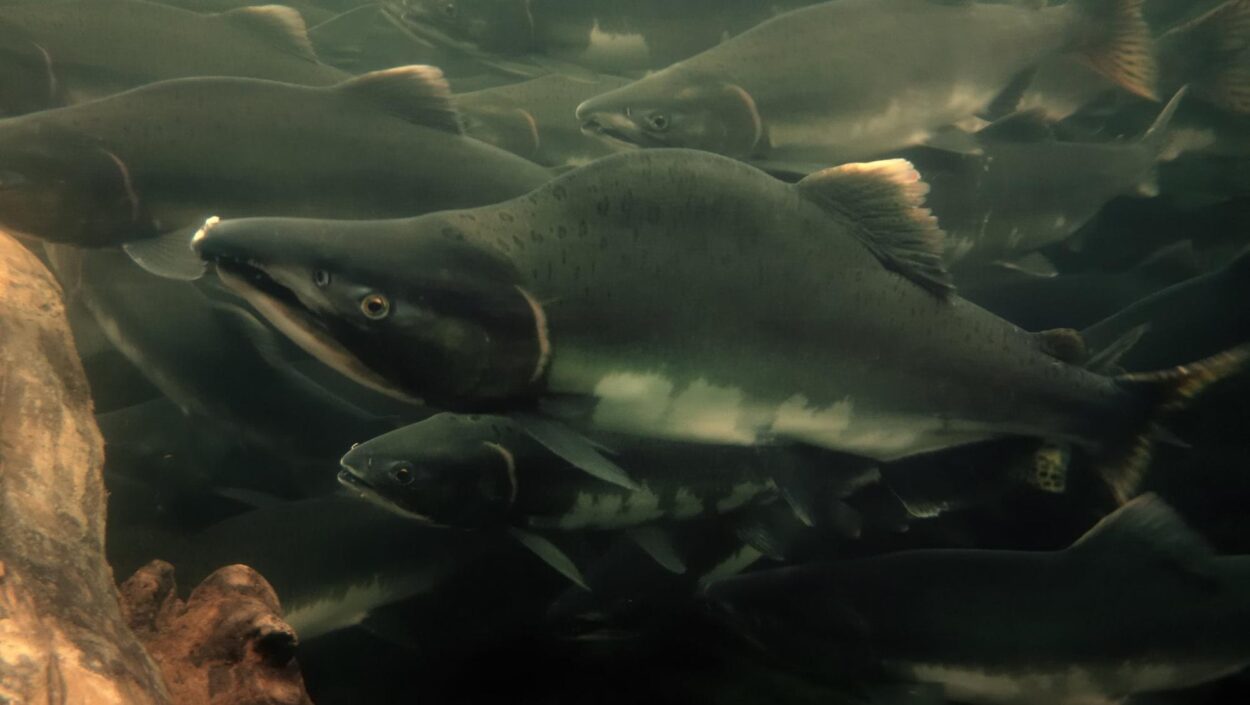
Access to traditional foods has long been a priority for Ketchikan’s federally recognized tribe. But for decades, Ketchikan residents have been barred from taking part in federal subsistence hunts and fisheries.
Now, Ketchikan Indian Community is pushing to change that. It hinges on one big question: is Ketchikan a rural community?
Trixie Bennett, the president of Ketchikan’s tribe, said the push to designate Ketchikan as a rural community is a major step toward the tribe’s goal of food sovereignty.
“Our food is our way of life,” Bennett said. “Our food is the medicine, our culture is the medicine.”
If Ketchikan was classified as rural, all residents — Native and non-Native — would be federally qualified subsistence hunters. That means they’d be able to hunt and fish on federal lands and harvest subsistence species, like ooligan from the Unuk River. And wildlife officials would be required to prioritize the needs of Ketchikan’s subsistence users over commercial and sport fishermen.
“We want this better access to our healthier foods around here and not just for us, but for everyone on the island,” Bennett explained.
She said traditional foods — like deer and fish — are high in protein and that indigenous people have been living off the land since time immemorial.
“There’s a reason that we’ve persevered,” Bennett said. “And we are so resilient, and I think a lot of that has to do with your food system.”
But what does it mean to be designated as a rural community?
Matthew Newman, from the Native American Rights Fund, said that’s decided by the Federal Subsistence Board.
“It is the definition by which subsistence rights are either offered or denied,” Newman explained. “But no one can come to a universal agreement as to what the term ‘rural community’ means.”
If an area is considered rural by the board, it means more subsistence rights, like those outlined in Title VIII of the Alaska National Interest Lands Conservation Act.
“In this instance, as a rural resident, you have the opportunity to hunt or fish under federal rules, federal hunting and fishing rules,” Newman said.
But Newman said there’s no precise definition of what the board sees as rural. As of now, Ketchikan is listed as nonrural — along with Juneau, Fairbanks, the Matanuska-Susitna Borough, Anchorage and the Kenai Peninsula.
Notably, the community of Saxman, which lies within Ketchikan’s borough and is connected to its road system, is considered rural by the board.
“It’s only by Alaska standards would anyone look at Ketchikan and say, “‘Well, that’s not that rural,'” Newman said.
In practice, redesignating Ketchikan as a rural community would allow residents to hunt and fish on more land and waters and increase bag limits.
But on Prince of Wales Island, where there’s widespread concern about deer populations, some aren’t so sure opening the island to more hunting and fishing is a good idea. Earlier this month, wildlife and conservation agencies held a three-day summit to discuss the problems facing the island’s dwindling deer population.
Clinton Cook is the president of the Craig Tribal Association, but he spoke to KRBD in his personal capacity.
Cook said he believes all small communities have a right to the designation. But he’s not sure now is the right time.
“So I think adding 10 more thousands (of) people to the queue might not be what is best right now, especially with diminished salmon populations, diminished deer populations,” he said. “I don’t think now is quite the time that Ketchikan will be designated as rural.”
Cook doesn’t think Ketchikan’s tribe should stop pushing their request. But he said he wishes Prince of Wales Island tribes had been more involved in the request.
“They should have been face-to-face with tribes on Prince of Wales and communities on Prince of Wales,” Cook said.
He said he’s having a meeting with Ketchikan’s tribe on the topic soon.
Bennett, the president of Ketchikan’s tribe, said Ketchikan hunters and anglers would still have to follow special guidelines depending on the status of the population at the time. And federal regulations mandate that if there aren’t enough deer on Prince of Wales Island to feed out-of-town hunters, local residents would get priority.
Ketchikan Indian Community’s request faces its first test in the coming days as the Southeast Regional Subsistence Advisory Council meets in Ketchikan.
But it’ll be a while before any changes take effect. Bennett said it could take as long as three years to complete the process.
The Southeast Regional Subsistence Advisory Council is meeting Tuesday through Thursday at Cape Fox Lodge. People who want to comment on the proposal can contact Ketchikan Indian Community for updates. More information is available at www.kictribe.info/ruralsupport.
Raegan Miller is a Report for America corps member for KRBD. Your donation to match our RFA grant helps keep her writing stories like this one. Please consider making a tax-deductible contribution at KRBD.org/donate.





